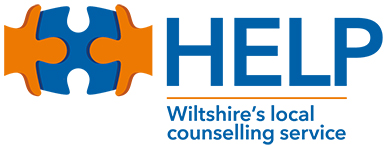What is Online or Telephone Counselling?
Online and Telephone therapy refers to therapy conducted via the internet or telephone. Some people may prefer to use video conferencing so that we can see each other as we speak, and some may prefer to use just audio. We encourage you to try video conferencing, as it is more like a real face to face session, than a telephone call. We will support you as much as possible if you’re new to the technology, and if it feels intimidating. Any questions you have we are happy to answer to help you get started.

Can I work with the same issues as face to face counselling?
Online or telephone counselling may be able to help with a wide range of issues, in the same way that face to face can; including abuse, anxiety, stress, depression, eating difficulties, loneliness, relationship problems, grief, self-esteem, sexual orientation, sexual abuse, discrimination, bereavement and many more. There may be only a few instances where face to face is more recommended.
If we feel that our service cannot help, we will do our best to advise you of what other forms of support which might be more suitable for you. Where we consider that online or telephone Counselling would not be the most appropriate means of support, we will make every effort to assist you in a referral to a suitable alternative source of support.
We are not able to provide online or telephone counselling to any person who is under the age of 16. If this applies to you, we can help with information on referral to other agencies providing face to face counselling services or online or telephone work which is specifically directed to a younger age group.
Benefits and Challenges
Some things you may enjoy about therapy online and over the telephone are:
- You can create a comfortable and private space in your own home from which to attend therapy.
- You may find it easy to talk, focus and express yourself, if you are in your own environment or home.
- You may enjoy wearing comfortable clothes, bringing a cup of tea and avoiding a commute after a therapy session.
- We may be able to be more flexible about scheduling.
- We will be able to continue our work together despite the pandemic.
- Research shows that online/telephone therapy is as effective as in-person therapy.

Some of the challenges we may face could be to do with an internet connection. We will share some instructions to help get you set up.
Another aspect of video conferencing can be that we are unable to see the whole person, with cameras often limiting the view to the top of half of our bodies. We will try and help with the set up of video conferencing and explain how we can set up our devices for eye contact, and for a better, more complete view of each other. We may have to rely on verbal explanations to assist in this process.
It may be quite a demanding experience, especially for those already using computer screens in everyday life at the moment. We may spend some time to help you to develop a self-care plan to support you.
Guidance
We encourage you to treat the online session as you would an in-person meeting and implement as many of the same boundaries as possible.
Find a comfortable space with privacy. This could be a comfortable armchair, your office desk, garden, a parked car or the living room floor. We suggest sitting on something where your back is supported and encourage you to get up and move if you start to feel uncomfortable.
You may wish to put a note on the door of the room requesting that other people not disturb you except in an emergency.
We encourage you to use headphones or earphones. This keeps the content of our sessions private, improves sound quality and also minimises distractions.
Please close other applications and browser windows on your device and put your phone on silent or turn it off just as we do in person.
You are welcome to bring water or a cup of tea or coffee with you to the session. Please avoid alcohol and drugs before and during the session. Please may we request that you don’t smoke or vape during the session.
Your pet is welcome to join you; however, it is helpful to be aware that this could be distracting.
Sometimes, after a session, it can be helpful to give yourself a little time and space so that you can process how you feel, before rejoining your family, working or making other calls.
Video Conferencing Platforms
We use a secure video conferencing platform called Zoom in order to protect our privacy and confidentiality. Our calls cannot be intercepted or recorded.
Bandwidth Requirements
The call quality on Zoom is usually very good. Your first session may involve getting used to the technology. Usually, if your internet is good enough to stream YouTube or Netflix, it is good enough for video conferencing.
We recommend closing all other browser windows and programmes running in the background to make the call quality as clear as possible.
Zoom can be accessed on your smartphone, a tablet, PC or laptop that has a webcam.

You can download Zoom from the App Store or the Play Store for your mobile devices and www.zoom.us for your computer.
Telephone Counselling
Telephone Counselling is very convenient and can be simpler to access than online Counselling, as it uses less technology. However, if you are using a mobile device, reception can create issues.
It relies on tone and communication and can expand a client’s range of emotional, verbal use, building on the therapeutic relationship to build understanding and grow awareness.
Telephone can be different. Sometimes misunderstandings may occur, as we don’t have the usual cues of facial expressions and body language which help communication. We should agree to think the best of each other and then try to express how we are feeling. In the event of a misunderstanding arising for either party, we should seek to clarify the cause of the miscommunication.
What does the service offer?
We will agree on an ‘Initial Appointment time’ by telephone or email. We will then meet by Zoom or telephone.
You will need to make payment for the initial appointment via our website using the Apply for Counselling section.
Alternatively, you can pay by BACS using your own online banking system.
After your initial appointment, you will be placed on our waiting list until an appropriate counsellor becomes available – this will be approximately 6-8 weeks. Counselling will be a weekly appointment which will occur at the same time and day each week.
If you need to cancel an appointment, please contact us by telephone or email, as soon as possible.
How much does Counselling cost?
HELP Counselling Services is a free or low-cost service. We ask every client for a donation per session towards the cost of Counselling. Each session costs the service £35 and every penny you donate goes straight back into the charity.
You can contribute using the button below, using a Paypal account or card.
As a gentle guide we recommend:
| Family Income under £15,000 per year | £1 to £5 per session |
| Family Income £15,000 to £20,000 per year | £5 to £10 per session |
| Family Income £20,000 to £30,000 per year | £10 to £15 per session |
| Family Income £30,000 to £40,000 per year | £15 to £25 per session |
| Family Income £40,000 + | £25 + |
About the way we work
We will provide, to the best of our ability, online or telephone counselling opportunities that endeavour to create a supportive, non-judgmental environment in which you will be given the time and space to understand and gain insight into your situation. This process can foster growth and lead to positive change in your life.
Confidentiality and Security
The content of your sessions and our work with you will not be shared with a third party except for the use of supervision of our work. In this instance, your identity will not be revealed.
We use Zoom as it is considered by the industry to be safe and confidential for our clients.
During our work, we will safely keep records, which you can receive copies upon request. At the end of our counselling agreement, these notes will be destroyed after seven years.
We are legally bound to disclose to the police authorities if a client reveals that they intend to cause serious risk of harm to others. In addition, if at any point during the Counselling you required emergency support, we may ask for your consent to contact your GP or recommend alternative avenues of support other than online or telephone Counselling.
Guidelines for Emergency Contact
We are unable to offer emergency out of hours online Counselling. In the event of an emergency arising, or if you were experiencing suicidal thoughts, please contact your GP, or your nearest accident and emergency service (A & E).
If you have any other questions…
If you have any questions, at any time, please do not hesitate to contact us via email, telephone or feel free to raise questions during your initial session.
We look forward to our work together and hope you enjoy working online or telephone as much as we do.
